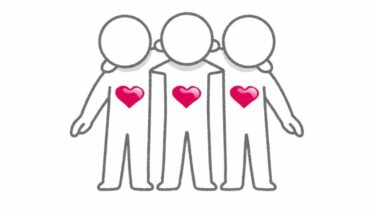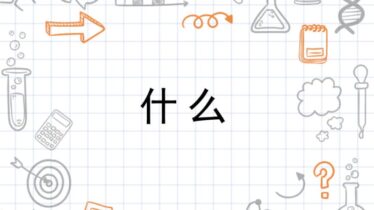Hoe gebruik je "了 (le)" in het Mandarijn Chinees
A question we often get from Mandarin students is how to use use ‘了 (le)’ in Chinese. Because we know that the tenses in English are very complex. But Chinese is very loosely structured around tense.
Let us take Past Tense as an example, the easiest way to indicate tense is to use a time marker. For example, If you want to say “I went to GoEast Mandarin in Shanghai yesterday”, you can simply say “I yesterday went to GoEast Mandarin in Shanghai”. “Yesterday” makes the sentence past tense. There’s another way of expressing completion of an action, and that is to use the particle ‘了 (le)’ as the suffix ‘-ed’ as in ‘watched’, ‘looked’, etcetera.
‘了 (le)’ indicating Occurrence or Completion
There are two forms.
First, “了 (le)” can be used at the end of a sentence. For example:
- 我去商店了。
- Wǒ qù shāngdiàn le.
- I went to the store.
and:
- 你买什么了?
- Nǐ mǎi shénme le?
- What did you buy?
Second, “了 (le)” can also be used between a verb and its object. There is usually a modifier before the object of the verb, such as a numeral classifier, an adjective or a pronoun, etc. For example:
- 他买了一点儿苹果。
- Tā mǎi le yìdiǎnr píngguǒ.
- He bought a few apples.
and:
- 你看见了几个人?
- Nǐ kànjiàn le jǐ ge rén?
- How many people did you see?
As we know that only action verbs can be marked as complete, ‘了 (le)’ can only be used with action verbs to indicate past tense.
Don’t use ‘了 (le)’ with stative verbs
You CANNOT use ‘了 (le)’ to indicate past tense for stative verbs (verbs that describe a state, such as ‘you are pretty’). In such a case, you need to use a past time marker such as ‘以前 yǐqián’ (before) or ‘昨天 zuótiān’ (yesterday) or ‘上个月 shàng ge yuè’ (last month) to indicate the past.
For example: “It was Monday yesterday.”
You cannot say:
- 昨天是了星期一。
- Zuótiān shì le xīngqīyī.
We will say:
- 昨天是星期一。
- Zuótiān shì le xīngqīyī.
Or another example is “I was at home yesterday.”
We cannot say:
- 昨天我在了家。
- Zuótiān wǒ zàile jiā.
The right sentences is:
- 昨天我在家。
- Zuótiān wǒ zài jiā.
Here you have to ask that which words are the stative verbs. Easily you can think that it is showing a state, not an action. Such as ‘是 shì‘ (to be), ‘喜欢 xǐ huān’ (to like), ‘爱 ài’ (to love), and so on.
Use ‘了 (le)’ to show change
In addition, “了 (le)” also used at the end of a sentence to indicate a change or the occurrence of a new situation. For example:
- 你女儿今年几岁了?
- Nǐ nǚ’ér jīnnián jǐ suì le?
- How old is your daughter?
and:
- 天气热了。
- Tiānqì rè le.
- The weather is getting hot.
and another example:
- 外面下雨了。
- Wàimian xiàyǔ le.
- It is raining outside.
了(le) = Past Tense? A common mistake in learning Chinese
Chinese students have faced the problem of how to use “了” correctly — no matter they are a beginner or an intermediate Chinese learner. “了” is quite tricky because we could get so confused about the position of it and we never know exactly when we should use it. Maybe you have been told that when you describe something that happened in the past, you have to use “了”, like the past time tense in English. But is that true?
Let’s take a look at some examples of V+了+(O)structure:
- 昨天 下课 以后 我 去 和 同学 打 篮球 了。
- Zuótiān xiàkè yǐhòu wǒ qù hé tóngxué dá lánqiú le。
- Yesterday after class I played basketball with my classmates.
Or:
- 上 个 星期 我 看 了 一部 特别 有意思 的 电影。
- Shàng gè xīngqī wǒ kān le yī bù tèbié yǒu yìsi de diànyǐng。
- Last week I watched a very interesting movie.
And:
- 明天 到 了 上海 我 要 先 去 见 我的 老师。
- Míngtiān dào le Shànghǎi wǒ yāo xiān qù jiàn wǒ de lǎoshī。
- Tomorrow when I arrive in Shanghai I will first go to see my teacher.
And:
- 今天 下 了 班 以后 你 打算 做 什么?
- Jīntiān xià le bān yǐhòu nǐ dǎsuàn zuò shénme?
- Today after work What are you going to do?
Apparently, example 1 and 2 express what happened in the past. But both examples 3 and 4 indicate something that will happen in the future, and we also use “了” under such condition. Therefore, we cannot take for granted that “了” is always used in the past.
In sentence 3, “到了上海” only means this action or event has been accomplished, but doesn’t mean it happened in the past. This sentence clearly states that the action is going to happen in the future by telling us “明天”. It’s the same in sentence 4 “下了班以后”.
Normally, when the “了” is used in the sentence that expresses something is going to happen, there will be two verbs. “了” will be placed after the first verb, and the second verb is going to happen after the first one has been accomplished. So “了” in this case indicates the completion of the first action.
Two more examples on ‘了 (le)’ and present/past tense
- 我 见 了 他 以后 才能 决定 要不要 跟 他的 公司 合作。
- wǒ jiàn le tā yǐ hòu cái néng jué dìng yào bú yào gēn tā de gōng sī hé zuò 。
- I have to meet him to decide if we are going to cooperate with his company.
And:
- 我 改 了 以后 发 给 你,你 别 担心。
- wǒ gǎi le yǐ hòu fā gěi nǐ ,nǐ bié dān xīn 。
- I will send it to you after I correct it. Don’t worry.
So now you should be more clear that “了” does not always equal to “-ed” in English, which means it’s actually not the mark of past tense in Chinese. It only indicates that something has been accomplished. It could be in the past, but could also be possible in the future.
We hope that gives a better idea of how to use ‘了 (le)’ in Chinese!






